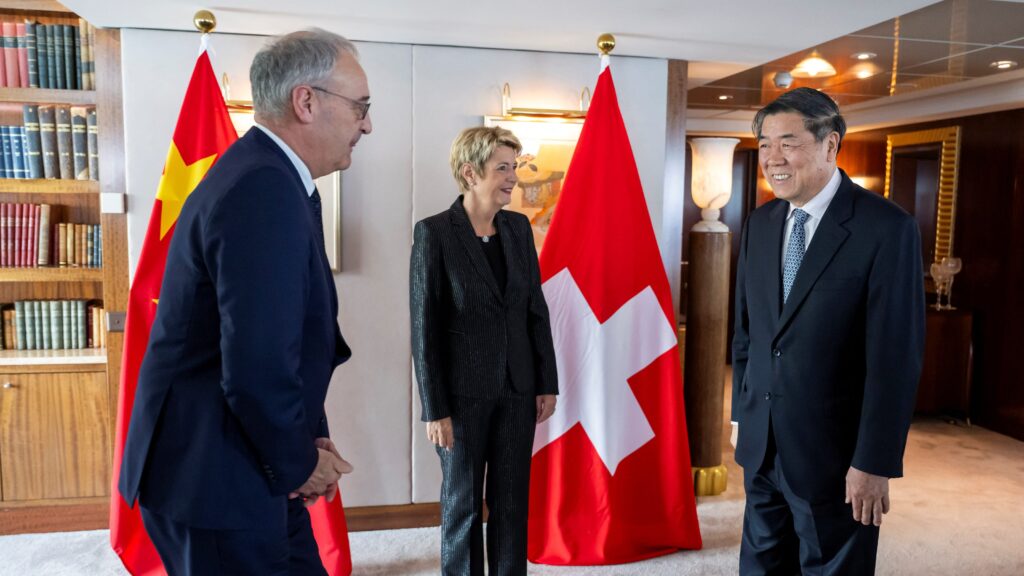President Donald Trump indicated a potential tariff reduction on Chinese imports from 145% to 80% ahead of trade negotiations with China, aiming to address the strained trade relationship between the two economic powerhouses. However, the intent behind this move, whether a negotiation tactic or a concrete proposal, remained unclear. Chinese Vice Premier He Lifeng criticized the current US tariffs as disruptive to the international economic and trade order, emphasizing China’s stance on fairness and justice in negotiations.
The upcoming trade discussions between the US and China in Switzerland were overshadowed by differing perspectives on tariffs. While some Republican figures, like Senator Mitch McConnell, voiced concerns over the negative impact of tariffs, others, such as Senator Steve Daines, supported Trump’s assertive approach in negotiations. Daines praised Trump’s strong stance as instrumental in initiating talks with Chinese leaders, highlighting the importance of reducing confrontation while addressing trade barriers.
In a related development, Trump heralded a trade deal with the United Kingdom as a potential model for future agreements with other countries, signaling a proactive approach to expanding trade partnerships. The deal with the UK maintained 10% tariffs on all imports but offered fewer restrictions on US exports like beef and dairy products. The Trump administration expressed optimism about the prospect of additional trade proposals from major trading partners, indicating a proactive and dynamic trade strategy moving forward.

